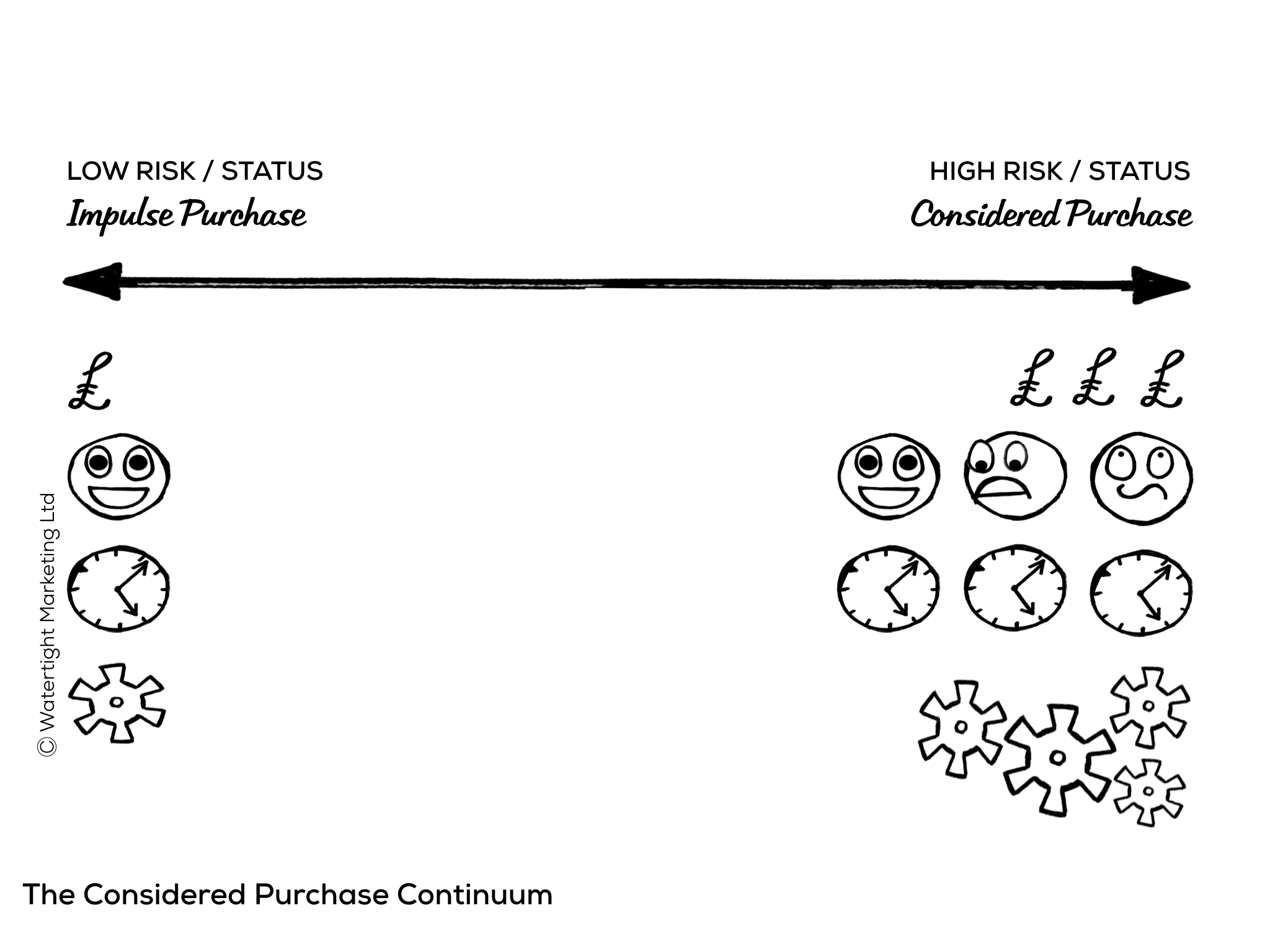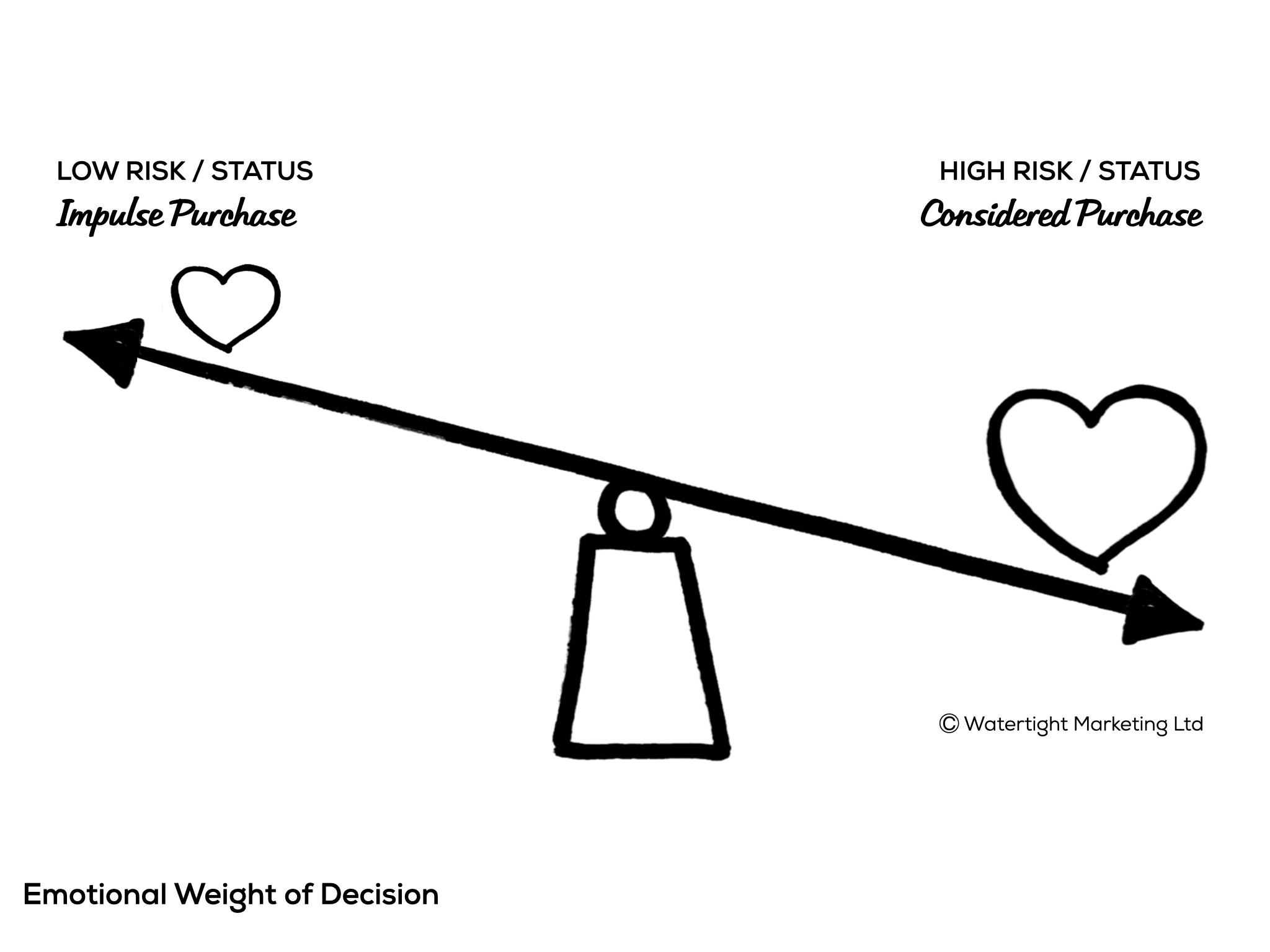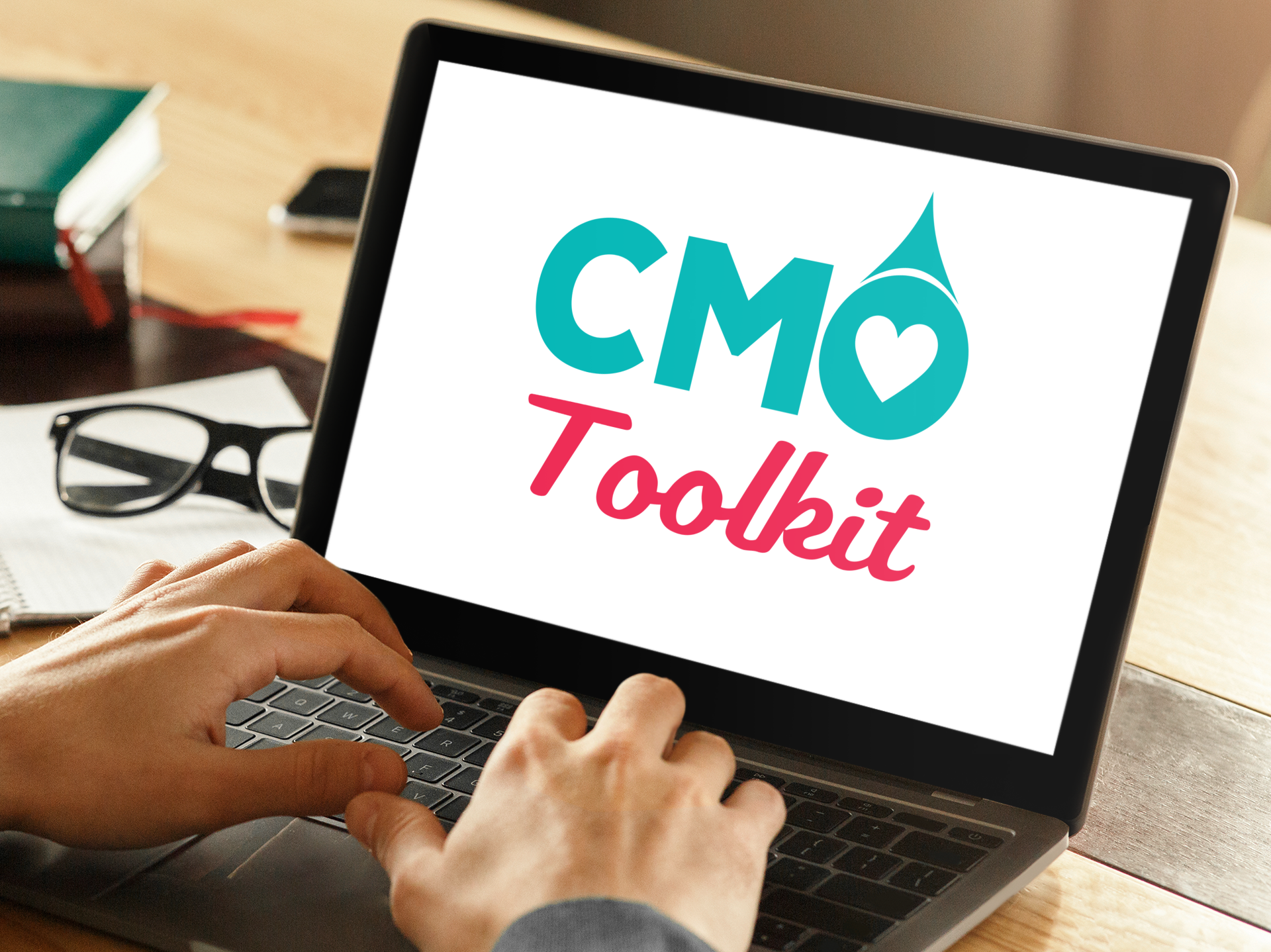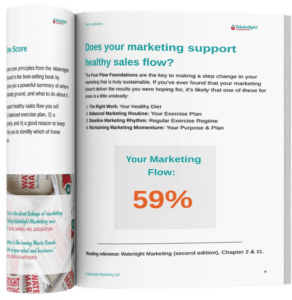Listen to the roundtable discussion here
How do your colleagues perceive marketing? Roundtable discussion (56 minutes)
Reading Time: 12 Minutes
How do your colleagues see marketing? Do they see it as strategic? Central to everything in the business and firmly at the core of operations? Or is marketing a peripheral ‘nice-to-have?’ A non-essential activity that you invest in only when times are good? Your answer to the question of how marketing is perceived is likely to correlate with how successful marketing is in your organisation. And also how rewarding you find your role as a marketer. ~ Rachael Wheatley, Master Practitioner | Watertight Marketing
Bryony Thomas, author of Watertight Marketing) kicked off the discussion with a run-down of the Considered Purchase Continuum (See: Watertight Marketing – 2nd Ed – Chapter 1). This is a key model from our toolkit to help you think about the thought processes customers go through when making a decision. It frames perceptions around a buying decision and what marketing to put in place that will help them make that decision. Invaluable when you’re thinking about marketing products or services – e.g. is this an impulse purchase or is this one that needs careful deliberation. It’s useful here when you’re aiming to shift the attitudes of the people inside your organisation.
Because if marketing currently isn’t centre stage in your organisation, then you’ll want to move the perception of your non-marketing colleagues to see marketing as a valuable strategic driver.
So what do your colleagues currently think about marketing and what would you like them to think about it?

Signs that you need to shift perceptions around marketing
Money; “We can’t afford it right now”
One of the key areas where attitudes to marketing is played out is in the way it’s perceived financially. How do money conversations around marketing go in your organisation?
If it’s along the lines of “Marketing is an optional expense. We’ll add to the budget when we’ve got the sales through”, then you’ve got a job on your hands. There’s a perception gap to bridge to move people from ‘it’s an overhead’ to ‘it’s a strategic investment.’
“I think the perception lies in where the business feels in terms of their success. If they’ve got cash in the bank, that’s great! Let’s invest and put some money back in the business. If businesses are feeling really tight, and they’re really looking at everything, and they don’t see marketing as critical, then they don’t invest.” Franco de la Croix-Vaubois, Event Organisers’ Network
“It’s been a really difficult time, hasn’t it over the last couple of years? My guess is that the businesses that have seen their marketing as a strategic investment were less likely to have put a stop to marketing, or made their marketers redundant during the pandemic.” Rachael Wheatley
“The way that people responded to COVID with regard to marketing is quite telling. If people cut the budget, clearly, they see it as an optional overhead. Whereas actually a number of our clients have doubled down and spent more because they’ve thought ‘we need to get this right now.’ Because if you can thrive in a storm then you thrive in fine weather” Bryony Thomas
“If you look at the businesses that kept marketing through the financial crisis of 2008, and then look at how they grew afterwards, it’s telling. Look at the businesses that actually invested during tough times, and you’ll see that crises are a good opportunity. If you get it right in tough times, then you really do get it right.” Franco de la Croix-Vaubois.
If your organisation is reluctant to invest, indeed if there’s a question at all over whether or not marketing is a discretionary spend, then that’s a sign that you need to shift its perception around the role of marketing.
A good place to do that can be around the question of the marketing budget itself. Discussions around budget are a crucial space for helping the rest of the team get on board with what marketing does for the organisation.
“I think if you want your organisation to take you seriously as a marketer, you have to be accountable because you’re talking about significant amounts of money. Don’t go in every year and say well, you know, this has gone up this much. Tie what you’re talking about back to what your organisation is doing. Visual budgeting techniques are invaluable. You will see pennies dropping in the room. Set your budget in the context of the buying journey and index it to goals. So provide index-linked budgeting, as it is a percentage of revenue or percentage of profit rather than a shopping list. It’s like a road to Damascus for some financial people because they do actually see the point of what you’ve been talking about.” Chris Turner, Marketing Consultant
People; “Marketing is your department – I don’t need to get involved.”
If you’re a lone marketer in a scaling business, particularly if you’re the first marketer that the organisation has employed, then there might be some misconceptions around where marketing fits into the picture. If the business has muddled through without marketing up until your arrival, there can sometimes be a sense of relief that now you’re here you can just take it all off their hands. You can go and do all the marketing, and they can get back to running the business. But of course it doesn’t work like that.
“If you were going to think about marketing as a journey, I would almost think of it as a sedan chair. You’ve got the customer on the sedan chair and we’re all holding one side of it and we’re all carrying the customer down that path. The brunt of the weight might vary at each stage, but really the whole journey is supported by everybody.” Bryony Thomas
You shift perception when you help your colleagues to see that marketing is something that everyone needs to get involved in. One way to do that is to educate the team. Teach them about marketing, and show them why their involvement is so important, and what they can do to support the organisation’s business development goals.
“Back in the mid late 90s I was working as marketing director of a law firm. Marketing was very new to law firms at the time. One of the best things I did which helped to get people on board was to take them on a marketing training course. We did a kind of marketing 101 with the lawyers. It got them involved in business development, together with other people around the firm. And the penny started to drop about what marketing was and wasn’t and what their contribution was. And most importantly it gave us a common language. Having a common language to use when you’re talking about marketing is so important for bringing people with you.” Rachael Wheatley
Educating the whole team is ideal, but there are a couple of key figures that you really want to get onside as a priority.
“Getting the MD and the finance person on board. They’re your go-to people to really change the temperature in a room.” Bryony Thomas
“It’s key to get the finance and the manager directors on board. But I’ve found that one of the best ways is through the sales director.…a new sales director who has had good marketing support in a previous role is your route to the boardroom.” Peter Baynes, Marketing Consultant
“It’s a challenge because Sales are often looking at the short term, and you’re looking at the long term. But you need to find a way to work together. You have to forge a partnership to a degree to meet the targets” Michelle Hayman, Marketing Consultant
Spending time with your sales team is a really useful activity for any one in a new marketing role. Sitting with them, going out on the road with them, working on proposals together. ‘Listening to sales calls has to be in your first 90 days, doesn’t it?’ said Bryony. ‘If you’ve not spent time shadowing your sales team, go do it!’
Time; “We need results – TODAY!”
Misconceptions around how long marketing takes are a sign that you need to shift perceptions.
The Considered Purchase Continuum is helpful here in changing colleagues’ expectations about time frames. If they readily perceive that marketing provides long term returns rather than immediate payback, you’ll have a good chance of making real strategic change. But if you are working in a business expecting a conveyor belt of quick marketing wins, it’s hard to make a meaningful impact that sticks.
The time horizon piece is critical to get right with your colleagues. When are they going to see a return on what you are doing? Because if they’re expecting it next month, but you’re delivering it in six months time, they might stop what you’re doing before it’s had time to work.
“Time frame is an interesting one in marketing tech into local government because of the skills gap. Selling technology can be challenging because you’re selling a technical product to a non technical person. It takes a long time.” Liz Davidson, QRoutes
Function; “Marketing is easy”
‘Marketing is just colouring in. Making things look pretty. Sending out a handful of invitations every now and then and then just sitting back. Anyone can do it.’
If you’ve come up against views like this from colleagues, then you’ll want to change perceptions. Organisations that undervalue the skills and experience necessary to be a good marketer are unlikely to give it the attention it needs.
“The people you work with have to buy into that whole marketing process. Because if they don’t, and you’re doing it as a solo marketer, it can be soul destroying. If you’re putting your best processes in place and then people just don’t engage! It’s disheartening… If the rest of the team is saying ‘I’m not going to bother’ you can really struggle.” Sara Parker, EPSRC CDT in Distributed Algorithms
“I think if you’re doing it in isolation, and people aren’t respecting the complexity and the nuance that got you to the decision or what you’re recommending it can absolutely be soul destroying. And equally if you manage to turn that around, it is exciting when people get on board and take an initial idea of yours and make it bigger and better.” Bryony Thomas
Underestimating the complexity of marketing can lead to difficult requests from colleagues. People asking for random page stats for individual web pages, to ‘check how well we’re performing’, for example. It’s not helpful to provide marketing statistics just like that. Metrics without context do nothing to raise the profile of marketing inside the organisation.
“Always frame your marketing metrics within the buying journey. Always put them within a time horizon.” Bryony Thomas
Emotion / Status: “Marketing doesn’t really matter”
Do your leadership team and other colleagues see marketing as the afterthought (left of continuum), prettying things up a bit once all the real decisions have been made? Or, do they see it as core to (right of continuum) understanding and communicating what you’re all about?

Michelle Hayman’s experience at Blu-Tack was a good example of an organisation that undervalued marketing. There was a belief that the business was so unique that it didn’t need to market itself.
“When I joined, everybody used to say, all the time, Blu-Tac doesn’t need to be marketed, it markets itself. It’s like Hoover, it’s a generic which has become commoditised. Every marketer’s worst nightmare! And of course, without marketing, there was a slow decline over a period of eight years.” Michelle Hayman, Marketing Consultant
Turning the situation around involved re-educating the business on the purpose and reach of marketing. Underlining its importance as a core activity that’s crucial to business success. Michelle continues,
“Getting it back on track meant going back to basics. Looking at the values of the product, getting back in touch with imagination, creativity and family. And working on our internal communications. By the time I left everybody was so excited and so involved. That’s the thing about marketing, when it’s working it does touch everybody.”
Watertight Wisdom
What’s worked for us
Ideas from the group to help you get your colleagues to take marketing seriously
- Educate. Marketing 101s for non-marketing colleagues to help them see the big picture and learn how to get involved.
- Cut the jargon. Use words that everyone understands. Try explaining what your business does to a teenager, and you’ll soon realise that actually, you do need to be a lot clearer. Because that’s what it’s like for people who have no idea what your business does.
- Think customer experience. Help everyone see that marketing doesn’t stop when the leads come in. Marketing continues once people become customers. If you want loyalty, you need to think about every touchpoint in the whole buyer journey. A holistic approach is vital, i.e. in retail/e-commerce your returns policy is central to your customer experience.
- It’s everybody’s job. Reinforce the message that marketing is everyone’s responsibility and permeates all parts of the business. Show them how they can make a useful contribution.
- Invite them in. Get people from across the company involved in areas like branding and values. Get them involved in achieving the overall objectives.
- Engage influencers inside the business. Get the MD and Finance on your side.
- Make friends with Sales. Spend time with the Sales team. Understand what’s happening in their world. Show them how marketing can make their lives easier and conversations with prospects warmer.
- Know your numbers. Use visual budgeting to help the rest of the team understand your workings and get excited about your direction.
What would you add to our list?
We’d love to know what’s worked for you in getting your business to take marketing seriously. Do add a comment below.
And if you fancy joining our next #WatertightWednesday round table marketing discussion, you can sign up here.

Subscribe to the CMO Toolkit
Would you like to get your hands on the tools, frameworks, templates, workshop packs, slides, and analysis tools we use with our clients? It’s all waiting for you.

Rachael Wheatley
Managing Director, Watertight Thinking
Rachael brings over 30 years’ of marketing experience, with a particular focus on building and developing effective marketing teams that are able to act as a strategic driving force across an organisation. She has worked with Watertight since 2014 as a Master Practitioner and joined the business as MD in 2022.



